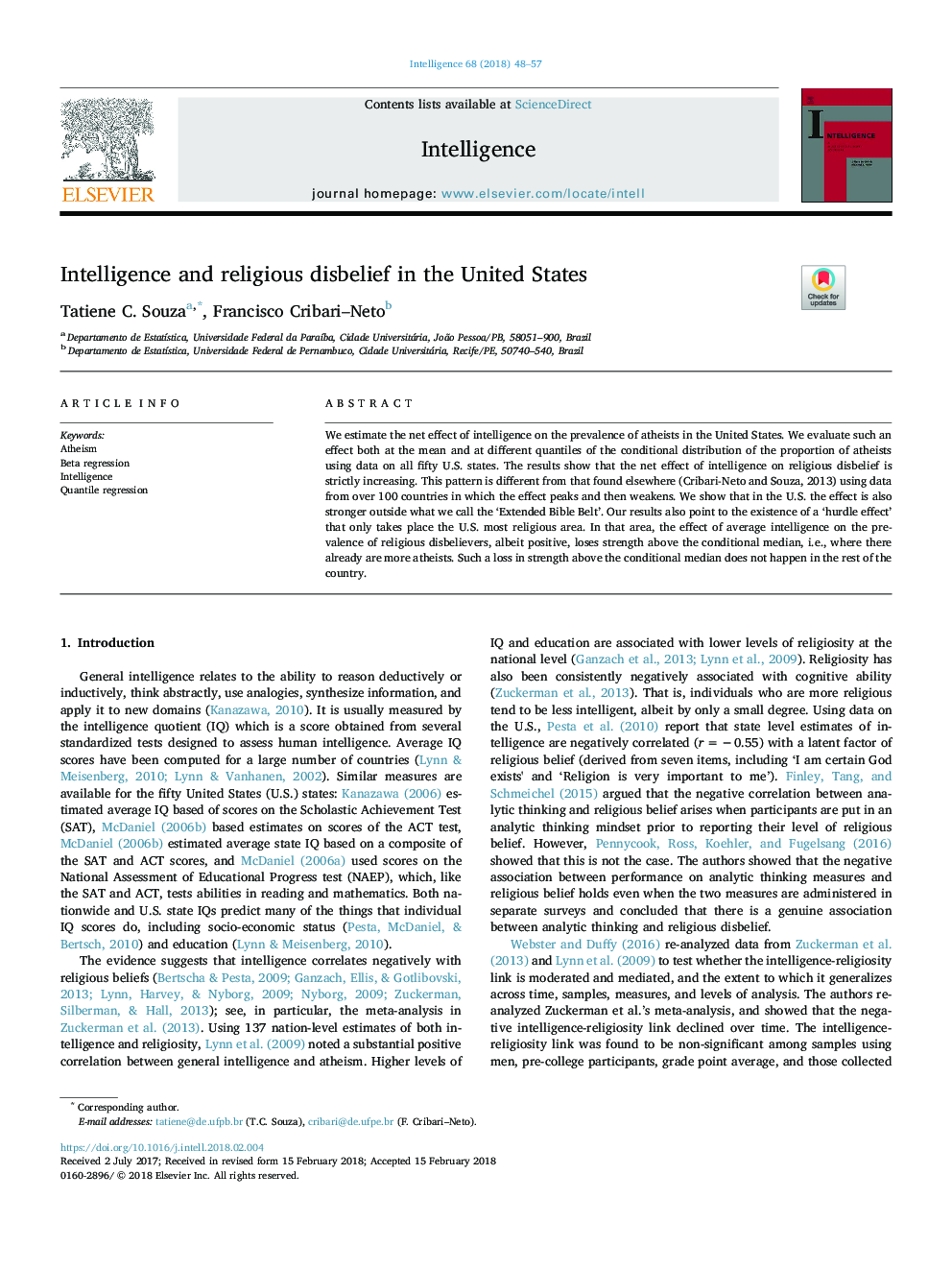| Article ID | Journal | Published Year | Pages | File Type |
|---|---|---|---|---|
| 7292814 | Intelligence | 2018 | 10 Pages |
Abstract
We estimate the net effect of intelligence on the prevalence of atheists in the United States. We evaluate such an effect both at the mean and at different quantiles of the conditional distribution of the proportion of atheists using data on all fifty U.S. states. The results show that the net effect of intelligence on religious disbelief is strictly increasing. This pattern is different from that found elsewhere (Cribari-Neto and Souza, 2013) using data from over 100 countries in which the effect peaks and then weakens. We show that in the U.S. the effect is also stronger outside what we call the 'Extended Bible Belt'. Our results also point to the existence of a 'hurdle effect' that only takes place the U.S. most religious area. In that area, the effect of average intelligence on the prevalence of religious disbelievers, albeit positive, loses strength above the conditional median, i.e., where there already are more atheists. Such a loss in strength above the conditional median does not happen in the rest of the country.
Related Topics
Social Sciences and Humanities
Psychology
Experimental and Cognitive Psychology
Authors
Tatiene C. Souza, Francisco Cribari-Neto,
